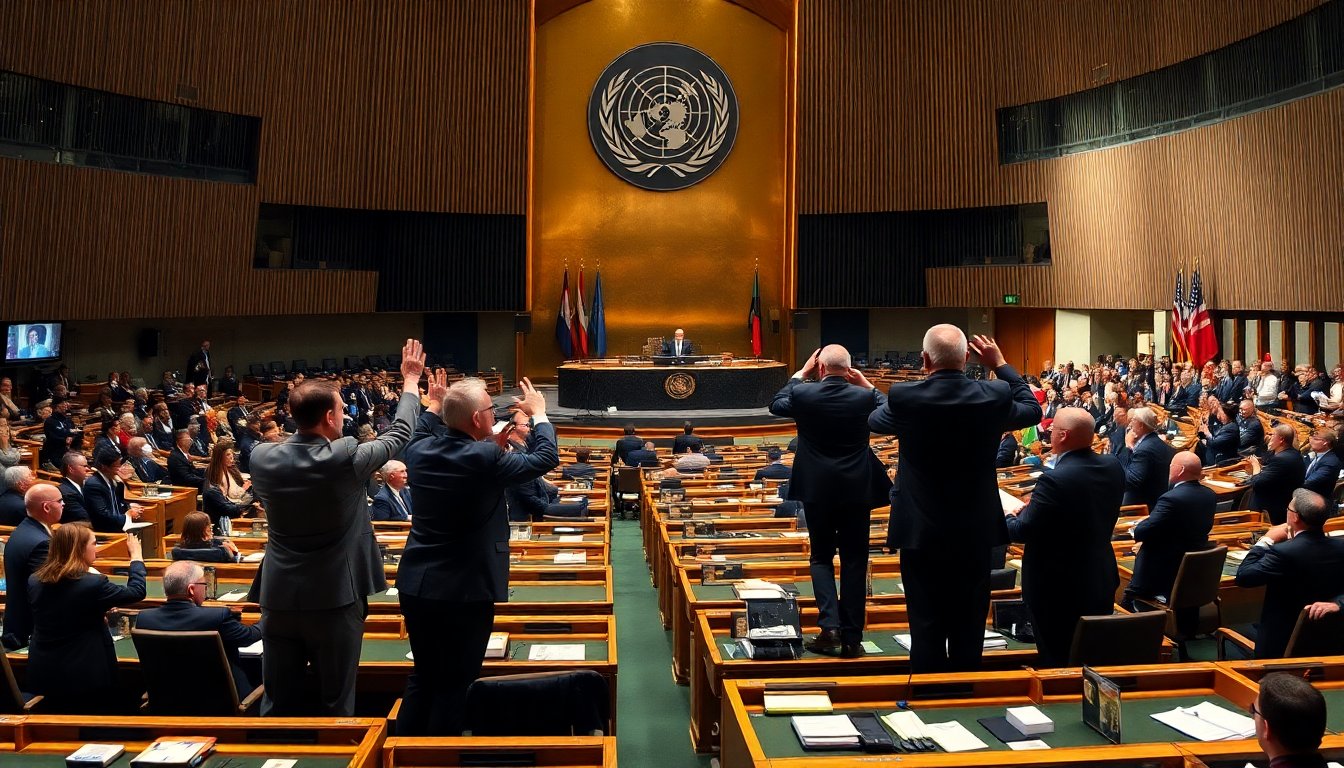Table of Contents
In a high-profile gathering at the United Nations, Israeli Prime Minister Benjamin Netanyahu delivered a speech asserting Israel’s military campaign against Hamas in Gaza. Despite facing criticism and protests, Netanyahu emphasized his determination to continue the conflict amid growing international calls for a ceasefire.
His remarks were made in a defiant tone, even as representatives from multiple nations staged a significant walkout. Netanyahu acknowledged the withdrawal but insisted that Israel would not succumb to external pressures.
The facts
Netanyahu’s speech coincided with increasing global isolation for Israel. Countries including France, Canada, and Australia have recognized a sovereign Palestinian state. Netanyahu condemned these decisions as a “disgrace,” claiming they could lead to violence against Jewish communities worldwide.
His insistence on military objectives comes as international bodies, including the European Union, consider sanctions against Israel. This follows a non-binding UN General Assembly resolution urging Israel to recognize the need for an independent Palestinian state, a proposal Netanyahu has rejected.
International reactions and implications
During his address, Netanyahu used visual aids to bolster his arguments, including a map labeled “THE CURSE.” He displayed a QR code on his suit to engage the audience and emphasized points similar to those made by U.S. President Donald Trump, a supporter of his military actions.
Amid accusations of war crimes, Netanyahu’s stance remains firm. The International Criminal Court has issued arrest warrants charging him with crimes against humanity, which he denies. Concurrently, the UN’s highest court is examining allegations from South Africa regarding genocide in Gaza, a claim Israel categorically rejects.
The humanitarian crisis in Gaza
The humanitarian situation in Gaza is dire, with over 65,000 Palestinian fatalities reported due to the conflict. Nearly 90% of Gaza’s population has been displaced, leading to severe conditions marked by starvation. As the international community demands immediate humanitarian aid and a ceasefire, Netanyahu’s administration remains focused on military goals.
Palestinian Authority leader Mahmoud Abbas addressed the General Assembly, voicing concerns over the humanitarian crisis. He called for international support to uphold Palestinian rights and statehood, criticizing the occupation and urging decisive global action to end the conflict.
The two-state solution debate
The concept of a two-state solution faces significant challenges, with Netanyahu opposing the establishment of a Palestinian state. He argues that it would reward Hamas and threaten Israel’s security, reiterating his commitment to Israel’s safety at a recent airport press conference.
As Netanyahu prepares for discussions with world leaders, including a scheduled meeting with Trump, the future of Israeli-Palestinian relations remains uncertain. The gap between the Israeli government and the international community continues to widen, raising questions about the prospects for peace in the region.


